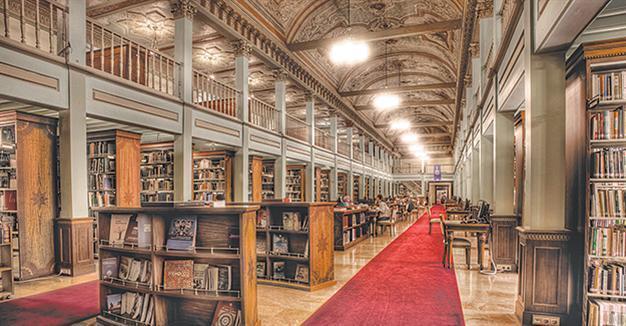Ottoman works in the digital age
ISTANBUL – Anadolu Agency

The Ottoman Optical Character Recognition (OCR) project, which enables rare Ottoman works to be transferred to the electronic world, has been launched by the Research Center for Islamic History, Art and Culture (IRCICA).
“You scan an Ottoman text first, upload it to a computer and the convert it into a word document; finally you can search this document,” said IRCICA General Director Halit Eren, explaining the process the ORC uses to bring old Ottoman documents into the digital age.
He said the IRCICA library at the historic Yıldız Palace was home to hundreds of thousands of documents, more than 70,000 photographs and more than 6,000 calligraphies.
“We established the Farabi Library in 2006. We scanned all of the Ottoman works and uploaded them to the library. Official Ottoman gazettes between 1821 and 1921, excluding the 18th issue of Takvim-i Vekayi that we failed to find, have been uploaded here. This collection does not exist in any other parts of the world,” he said.
Eren said they also documented yearbooks, in which annual events were documented in the Ottoman era, and said the following about the new OCR application:
“We have initiated a new work in this library. This work was prepared in five-six months by a technical team collaborating with our librarians who developed the OCR. You can scan an Ottoman document, upload it to a computer and work on this document after converting it to a Word document.”
Eren said the application had previously been made for the Latin alphabet and was used for Turkish and English books. “This is a first in the world for Ottoman documents,” he said.
Eren said the Ottoman OCR would be convenient for researchers and continued:
“In the first stage, we handled printed documents. Previously, researchers had to look at the whole book when searching for a name in an Ottoman-language yearbook or work. Now with the Ottoman OCR application, they will do it easily and fast. The Ottoman OCR will be developed and more common. Our next goal is to apply it to Ottoman manuscripts.”
Eren noted the IRCICA library was a specialized library and had a number of distinctive features. “Academics and researchers who fail to find what they look for in other places come to our library or reach it online on the Internet. Researchers abroad also use our library. They sign up first and use our library whenever they want,” he said, adding the Ottoman OCR application could be accessed by everyone through the library’s network at library.ircica.org.
The IRCICA library is a reference library specializing in Islamic culture and civilization. The library is open six days a week, except Sunday, between 9 a.m. and 5 p.m.
 The Ottoman Optical Character Recognition (OCR) project, which enables rare Ottoman works to be transferred to the electronic world, has been launched by the Research Center for Islamic History, Art and Culture (IRCICA).
The Ottoman Optical Character Recognition (OCR) project, which enables rare Ottoman works to be transferred to the electronic world, has been launched by the Research Center for Islamic History, Art and Culture (IRCICA).
